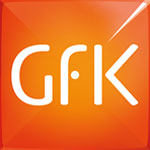
Above all, in Western industrialised nations, this boom is occurring at the expense of feature phones, which do not offer the diverse range of smartphone functions. These are the latest GfK Retail and Technology findings prepared for IFA 2011, which is taking place in Berlin.
The global mobile communications market is currently in a period of transition from standard mobile phones to multimedia devices, which make accessing the internet easy and appealing. Consequently, it is important that manufacturers position themselves as innovative smartphone providers to avoid being trapped in the stagnant declining feature phones market, which also generates weaker sales on the whole. In the first half of 2011, the number of smartphones sold noticeably increased in Western industrialised countries and Asia in particular. The share of overall sales of these devices in South-East Asia and China (including Taiwan and Hong Kong) already stands at 22% and 29% respectively. As a result of lower purchasing power and the focus of infrastructure networks on vocal transmission, the share of sales attributable to smartphones in emerging and developing states is lower, at less than 10% in India and below 15% in sub-Saharan African countries. The majority of sales in these regions are still generated by feature phones.
Despite restrained consumer sentiment in the eurozone, the European mobile phone market has developed positively, which is primarily attributable to the rising popularity of smartphones. In the first six months of the year, sales of mobile phones in Europe increased by 4%. Smartphones, in particular, experienced a real boom, with a 79% rise in the number of devices sold, and were therefore able to compensate for the 15% sales decline of feature phones, which are mobile phones that have proprietary operating systems. Currently, more than one in three mobile phones sold in Europe are smartphones, and this is set to increase further. Competition in the premium segment is determined by technical innovations, such as faster processors and larger display screens.
Industry and network operators are expanding their range for consumers who are looking for a smartphone in the entry-level segment; this includes offering comparably cheap models, affordable monthly flat rates for mobile internet access and prepaid services. At the same time, the Android open operating system has further increased its market share, with almost 43% of smartphones sold in June 2011 using this system. Android has also removed entry barriers for new operators; this has resulted in a rapidly expanding diversity of products and intense competition, which ultimately leads to falling prices. While one year ago, European customers paid an average €376* for an Android smartphone (handset only, without contract), the average price in June 2011 had dropped to €308.
Sales of mobile phones in Germany increased by 6% in the first half of 2011 and, at present, every second mobile phone sold is a smartphone. Germany's mobile phone market sets itself apart from the five major Western European countries; France, Italy, the Netherlands, Spain and the UK. The comparatively good consumer sentiment in Germany certainly plays a significant role.
Approximately one million operator-specific mobile broadband dongles providing internet access on the move have been sold since the start of this year. The rapid data transmission offered by dongles is a strong selling point. Retailers already offer products with download rates of up to 21.6 megabits per second (HSPA+), and in some areas the first dongles offering even more rapid data transmission of up to 50 MBit/s via the 4G network are available. In future, the smartphone segment will particularly benefit from the fact that consumers want to be able to use the internet comfortably on the move. In comparison to traditional computers, smartphones do not involve significant organisational and administrative effort. As a result, interest in online data storage, known as "cloud computing", will also rise. Mobile internet access will become increasingly popular due to the modern, high-performance 4G network.
Through its retail panel, GfK Retail and Technology regularly collects data on mobile phones and landline telephones, mobile broadband dongles, mobile phone accessories, radio devices, phone tariffs and mobile content such as games and ringtones in more than 90 countries around the world.
*Exchange rate at time of posting: €1=R10.16

The GfK Association was established in 1934 as a non-profit organization for the promotion of market research. Its membership consists of approximately 600 companies and individuals. The purpose of the Association is to develop innovative research methods in close cooperation with academic institutions, to promote the training and further education of market researchers, to observe the structures and developments in society, the economy and politics that play a key role in private consumption, and to research their effects on consumers. Survey results are made available to the membership. The GfK Association is a shareholder in GfK SE.
Go to: http://www.gfk.com